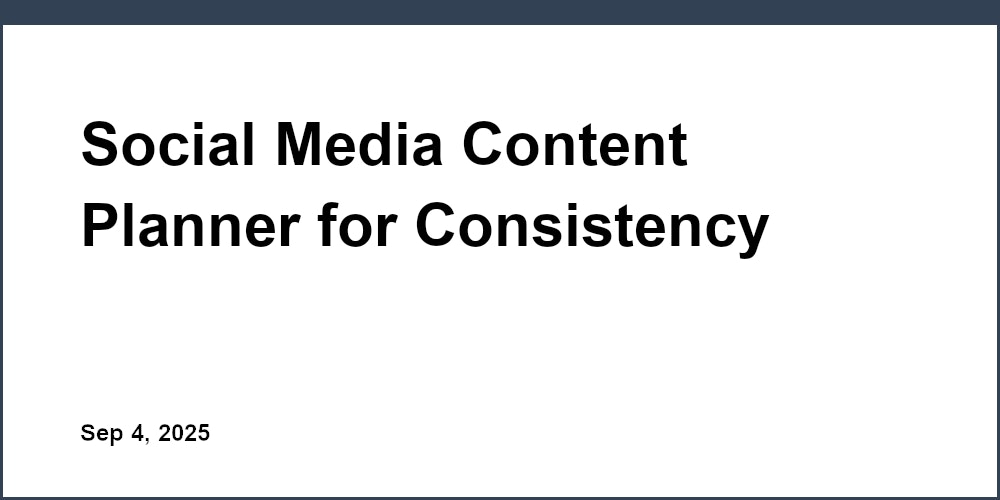Artificial intelligence (AI) has revolutionized digital marketing, offering unparalleled opportunities to streamline processes, boost efficiency, and produce better results. However, leveraging AI effectively requires strategic thinking and staying updated on the latest tools and practices. This article breaks down insights shared by digital marketing experts into actionable strategies designed to empower professionals and entrepreneurs who are striving to achieve better outcomes in their marketing efforts.
If you’re looking to adapt to the ever-changing digital landscape, stay competitive, and create measurable business growth, read on for transformative strategies that harness the power of AI.
The Role of AI in Digital Marketing: Myths vs. Reality
First, let’s address a common misconception: Is AI about to replace traditional SEO and marketing strategies? The short answer is no. Despite exaggerated claims that AI will replace SEO or traditional search engines like Google, the reality is more nuanced.
While AI-driven tools such as ChatGPT and Bing AI are reshaping user behavior and how we find information, SEO remains central to organic search traffic. According to studies cited in the discussion, Google still commands over 90% of overall search market share, while AI tools account for less than 1%. Hence, SEO isn’t going anywhere – it’s evolving in tandem with AI.
To thrive, businesses need to balance traditional SEO approaches with new methods like Generative Engine Optimization (GEO) to ensure visibility on both search engines and AI-powered tools.
7 AI-Driven Strategies to Transform Your Digital Marketing
1. Combine SEO and GEO for Maximum Visibility
SEO and GEO (Generative Engine Optimization) work hand-in-hand to boost your visibility. GEO focuses on optimizing for large language models (LLMs) like ChatGPT and Google’s AI features, ensuring AI tools can easily interpret your content.
- SEO Fundamentals Still Matter: Create high-quality, keyword-rich content and follow traditional SEO practices like optimizing headers (H1, H2, H3), meta descriptions, and schema markup.
- GEO for AI Visibility: Complement SEO with GEO techniques, such as structuring your pages with technical data (e.g., schema.org frameworks) that AI tools can interpret.
While AI tools don’t constantly crawl and reindex your content like Google, providing well-structured, technically optimized pages gives your content an edge.
2. Leverage AI for High-Quality Content Creation
AI can speed up content creation, but it requires a strategic partnership with human oversight:
- Use AI as an Assistant, Not a Replacement: AI is excellent for generating first drafts and content outlines. However, it can produce generic, contextually off, or even inaccurate material.
- Fact-Check and Edit Extensively: Always apply a human touch to refine AI-generated content, ensuring it’s optimized for SEO and tailored to your audience.
- Incorporate Keywords Thoughtfully: While you can prompt AI to include keywords, it often struggles with placement. Refine the content so that keywords are naturally integrated into the narrative.
Pro tip: For SEO-friendly content, tools like Semrush and other SEO-focused AIs can offer optimized outputs by leveraging search data.
3. Target Micro-Moments with AI-Driven Advertising
Micro-moments occur when a user has a specific, immediate intention – such as searching for a product after trying it or researching a service while on the go. AI can help you capture these high-conversion opportunities:
- Leverage Audience Data: AI enables precision targeting by analyzing user behavior, preferences, and search intent to find ideal moments for engagement.
- Automate Bidding Strategies: Use AI-driven automated bidding in platforms like Google Ads to optimize for conversions, not clicks.
- Allow Learning Periods: AI tools often allocate part of your budget to "learn" user behavior, so ensure your campaigns have enough flexibility and ad spend to fine-tune performance.
4. Adapt SEO Strategies to AI-Driven Search Features
AI features like Google’s AI overviews and SER (Search Engine Results) features are transforming how users interact with search results. To adapt:
- Focus on Comprehensive Content: Long-tail keywords and rich, in-depth content are more likely to appear in AI overviews that answer complex user queries.
- Prioritize Structured Data: Effective use of schema markup ensures your content is easily understood and indexed by AI tools.
- Emphasize Authority: Create shareable, accurate content that builds trust and solidifies you as a thought leader in your industry.
Pro tip: While impressions may increase as your content appears in AI features, clicks may decline as users engage directly on the SER page. Focus on measuring conversions rather than traffic volume alone to ensure success.
5. Collaborate with AI to Improve Ad Performance
AI tools for digital advertising – such as Google Ads AI – optimize campaigns in real-time to maximize results. Here’s how to leverage them effectively:
- Focus on Conversion Metrics: Instead of obsessing over cost-per-click, measure success by metrics like cost-per-acquisition (CPA) or return on ad spend (ROAS).
- Experiment With Broad Match Keywords: AI can identify relevant opportunities you may have overlooked, but ensure your campaigns have adequate budgets for testing.
- Audit Campaigns Regularly: Analyze performance to weed out low-quality clicks and refine targeting. Constant monitoring ensures your strategy evolves alongside AI’s learning.
6. Establish AI Governance
With great power comes great responsibility. Establish clear guidelines for how AI is used within your organization:
- Define Ethical Boundaries: Limit AI’s role in sensitive projects or where human insights are critical.
- Regularly Review AI Outputs: Ensure the accuracy and relevance of AI-generated content or campaign results.
- Maintain a Human Loop: AI can enhance productivity but should never replace human oversight entirely.
7. Invest in Continuous Learning and Emerging Trends
The AI landscape evolves rapidly, and staying ahead requires ongoing education and experimentation.
- Monitor Algorithm Changes: Keep an eye on updates from Google and other search engines to refine your SEO strategy.
- Track Industry Trends: Embrace new tools and methods as they emerge, from AI-enhanced analytics to content creation innovations.
- Experiment Systematically: Test new ideas regularly, assess results, and adjust your approach based on data and insights.
Key Takeaways
- SEO and GEO Complement Each Other: Combine traditional SEO with generative engine optimization to improve visibility on both search engines and AI tools.
- AI as an Assistant: Use AI to draft content, but refine it with human insights and creativity.
- Target Micro-Moments: AI-driven advertising helps pinpoint user intent and convert at high-value moments.
- Adapt to AI Search Features: Produce high-quality, structured content to thrive in AI-enhanced search results.
- Focus on Conversions: Measure success by quality traffic and ROI rather than sheer volume.
- Implement AI Governance: Ensure ethical use of AI and maintain a human touch in critical areas.
- Stay Agile: Follow emerging trends, experiment with new tools, and adapt strategies continually.
Conclusion
AI’s transformative power in digital marketing is undeniable, but its effectiveness ultimately depends on how well it is integrated into your strategy. By combining traditional practices with AI innovations, marketers can achieve more meaningful engagement, optimize their efforts, and drive measurable growth.
The key is balance: use AI to enhance efficiency, but never at the expense of quality, human insight, and creativity. With the right approach, AI can become a catalyst for achieving your business goals in the fast-paced world of digital marketing.
Source: "AI in Digital Marketing: Strategies for Success" – Northwoods, YouTube, Aug 14, 2025 – https://www.youtube.com/watch?v=MKUpY2GE0hI
Use: Embedded for reference. Brief quotes used for commentary/review.







